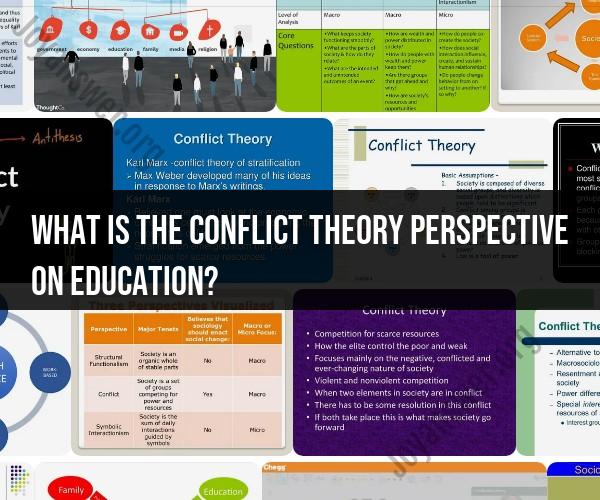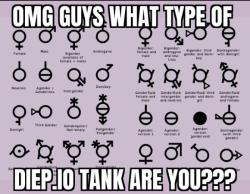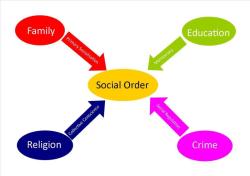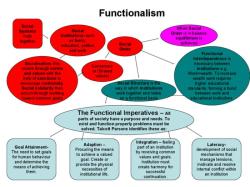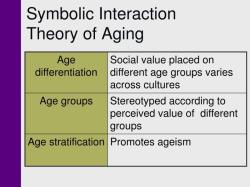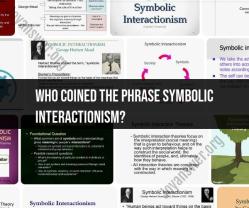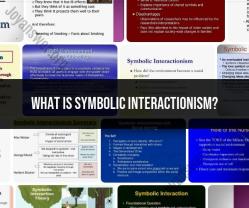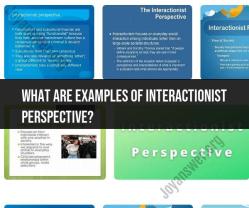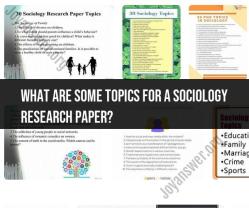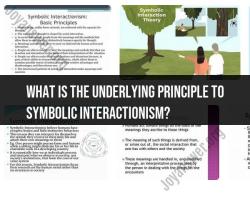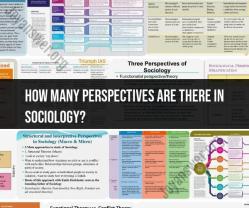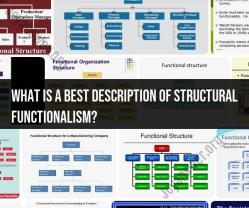What is the conflict theory perspective on education?
The conflict theory perspective on education is a sociological framework that views education as a system that perpetuates and reinforces social inequalities and power imbalances within society. It is rooted in the broader conflict theory, which posits that society is characterized by competition and conflict among different social groups over limited resources, such as wealth, power, and influence. In the context of education, conflict theorists analyze how educational institutions contribute to and reflect these social conflicts and inequalities.
Here are key elements of the conflict theory perspective on education:
Structural Inequality: Conflict theorists argue that educational systems are not neutral but are shaped by the dominant social and economic interests of the ruling class. They contend that the educational structure is designed to maintain and reproduce existing social hierarchies.
Social Stratification: Education is seen as a mechanism that perpetuates social stratification, as it sorts individuals into different social classes based on their access to quality education and opportunities. Those with more resources and privileges have an advantage in the educational system.
Reproduction of Inequality: Conflict theorists believe that educational institutions, rather than promoting social mobility, reproduce existing inequalities. This is achieved through factors such as unequal funding for schools, tracking and ability grouping, and biased standardized testing.
Hidden Curriculum: There is an emphasis on the "hidden curriculum," which refers to the implicit values, norms, and behaviors that are taught in schools. Conflict theorists argue that this hidden curriculum often reinforces conformity, obedience, and acceptance of the status quo.
Credentialism: Education is viewed as a means of obtaining credentials or qualifications that determine access to certain job opportunities. Conflict theorists argue that this credentialism can lead to a system where individuals are valued more for their degrees and certifications than for their actual skills and abilities.
Social Control: Educational institutions can also be seen as tools of social control. They socialize individuals into accepting their roles within the existing social structure, discouraging dissent and challenging the status quo.
Resistance: Conflict theorists recognize that not all individuals passively accept the inequalities perpetuated by the education system. Some students and educators may engage in resistance efforts, such as protests, advocacy, or alternative educational models, to challenge these inequalities.
Critical Pedagogy: Some conflict theorists advocate for critical pedagogy, an approach to education that encourages critical thinking and analysis of power structures. It aims to empower students to question and challenge social inequalities.
In summary, the conflict theory perspective on education emphasizes the role of educational institutions in reinforcing and perpetuating social inequalities. It highlights how access to quality education, curriculum content, and the hidden messages conveyed in schools can all contribute to maintaining existing power imbalances within society. Conflict theorists call for a more equitable and just educational system that addresses these issues and promotes social change.
Examining Education Through Conflict Theory Perspective
Conflict theory is a sociological perspective that views society as being in a state of constant conflict between different groups with competing interests. Conflict theorists argue that education is not a neutral institution, but rather one that serves to reproduce social inequality.
Conflict theorists focus on the following aspects of education:
- The relationship between education and the economy: Conflict theorists argue that education is primarily concerned with training students to fill specific roles in the economy. The educational system is designed to produce a workforce that is obedient and submissive to the needs of capital.
- The role of education in maintaining social hierarchy: Conflict theorists argue that the educational system helps to maintain social hierarchy by tracking students into different academic programs and occupational paths based on their social class. Students from higher social classes are more likely to be placed in rigorous academic programs that lead to high-paying jobs, while students from lower social classes are more likely to be placed in vocational programs that lead to low-paying jobs.
- The role of education in reproducing gender and racial inequality: Conflict theorists argue that the educational system also helps to reproduce gender and racial inequality. For example, girls are often encouraged to pursue careers in fields such as education and nursing, while boys are encouraged to pursue careers in fields such as engineering and business. Students of color are also more likely to be placed in lower-quality schools and less rigorous academic programs than white students.
Conflict Theory's View on Education: Analyzing the System
Conflict theorists view the educational system as a microcosm of society as a whole. They argue that the same conflicts that exist in society as a whole, such as the conflict between different social classes, are also present in the educational system.
Conflict theorists analyze the educational system by looking at the following:
- The distribution of resources: Conflict theorists argue that the distribution of resources in the educational system is not equal. Schools in affluent neighborhoods typically have more resources than schools in poor neighborhoods. This difference in resources can lead to unequal educational outcomes for students from different social classes.
- The curriculum: Conflict theorists argue that the curriculum in schools is not neutral. Rather, it reflects the values and interests of the dominant social class. For example, the curriculum often focuses on teaching students about the history and culture of the dominant social class, while the history and culture of marginalized groups are often ignored.
- The role of teachers: Conflict theorists argue that teachers play a role in reproducing social inequality in the classroom. Teachers may have unconscious biases against students from certain social groups, and they may track students into different academic programs based on their social class.
Inequality and Education: Understanding Conflict Theory's Insights
Conflict theory provides a valuable lens for understanding the relationship between inequality and education. Conflict theorists argue that the educational system is not a neutral institution, but rather one that serves to reproduce social inequality.
Conflict theory can help us to understand why students from different social groups have different educational outcomes. For example, conflict theory can help us to understand why students from low-income families are more likely to drop out of school than students from high-income families.
Conflict theory can also help us to identify areas where we can work to make the educational system more equitable. For example, we can work to ensure that all schools, regardless of their location, have access to equal resources. We can also work to develop a more inclusive curriculum that reflects the history and culture of all students.
By understanding conflict theory's insights into the relationship between inequality and education, we can work to create a more equitable educational system for all students.
